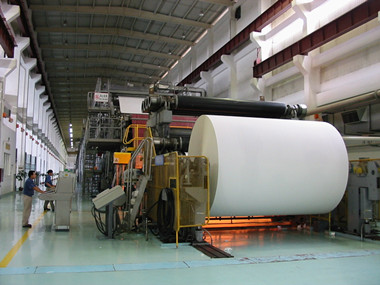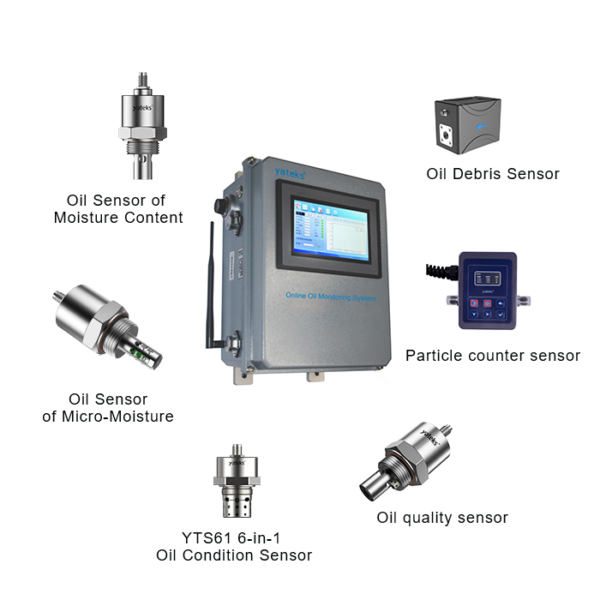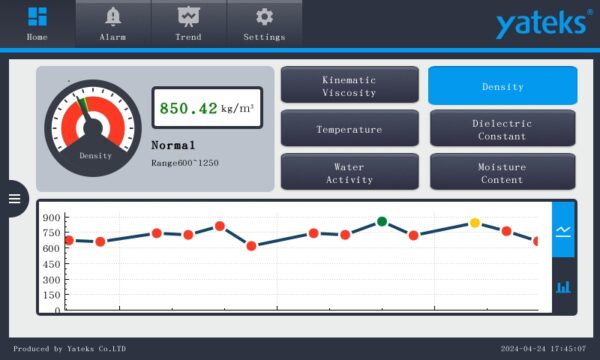1.Real-Time Monitoring Challenges in Paper Mill Oil Management
In the operation of paper mill equipment, a significant amount of mechanical machinery relies on long-term lubrication to function effectively. The quality and performance of lubricants are directly linked to equipment longevity, operational efficiency, and production reliability. However, traditional oil monitoring processes in paper mills frequently face several challenges:
(1)Frequent Equipment Failures
The complexity of paper mill machinery, combined with prolonged high-load operations, makes lubricant degradation or contamination a leading cause of equipment failures.
(2)Delayed Offline Fluid Quality Inspections
Many paper mills continue to depend on manual sampling and periodic laboratory analyses, which can lead to data delays and fail to represent the fluid’s real-time condition.
(3)High Maintenance Costs from Equipment Failures
The inability to promptly monitor fluid issues often results in significant wear, damage, and downtime for repairs and part replacements, leading to elevated maintenance costs.
(4)Lubricant Waste
In the absence of real-time monitoring, factories frequently replace lubricants preemptively to prevent equipment damage, resulting in fluid waste and increased expenses.
2.Common Issues in Paper Mill Equipment Lubricants
In paper mills, lubricant degradation and contamination are prevalent problems, often manifesting in the following ways:
(1)Fluid Oxidation
Extended use or high-temperature conditions can lead to the oxidation of lubricants, diminishing their lubricating properties and increasing equipment wear.
(2)Water Contamination
Given the substantial amount of water involved in the papermaking process, lubricants are highly susceptible to moisture intrusion, which can destroy the oil film and lead to lubrication failures, as well as accelerate equipment corrosion.
(3)Solid Particle Contamination
Pulp fibers, dust, and wear particles can enter lubricants, increasing wear on equipment and impairing the oil’s filtering capabilities.
(4) Changes in Oil Viscosity
Significant variations in the viscosity of lubricating oil can result in inadequate or excessive lubrication, adversely affecting equipment efficiency.
To address these challenges, paper mills can deploy online oil monitoring systems for real-time monitoring, thereby enhancing production efficiency. The operating principle of these systems will be discussed further.
3.Solutions Offered by Oil Online Monitoring Systems
Application of Oil Liquid Sensors and Online Monitoring Systems:
By installing integrated online monitoring sensors on paper mill equipment, key performance parameters of lubricants (temperature, moisture, viscosity, oxidation levels, particle contamination, etc.) can be continuously monitored. The core components of the oil fluid online monitoring system include:
(1)Multi-parameter Sensor Monitoring:
Sensors can detect various performance parameters in lubricating oil in real time. If any parameters exceed normal ranges, the system will issue alerts and notifications.
(2) Automatic Data Collection and Analysis:
The system automatically records and stores all monitoring data, enabling real-time assessment of fluid health and an early warning mechanism to prevent unexpected equipment failures.
(3)Cloud Monitoring and Predictive Maintenance:
Monitoring data is uploaded to the cloud, where AI technology can further evaluate lubricant health and generate predictive maintenance schedules. This allows for informed decisions regarding fluid replacement, mitigating issues of excessive or untimely maintenance.
Implementation Steps for the Solution:
(1) Installation of Online Sensors:
Oil sensors are placed in the oil lines of critical equipment to ensure real-time monitoring.
(2) Integration with Online Monitoring Systems:
Data collected by sensors is transmitted to a cloud-based IoT platform for real-time analysis and alerts.
(3) Data Analysis and Decision Support:
The monitoring data is leveraged to analyze lubricant health, assess fluid life, and develop tailored maintenance and replacement strategies.
4.Benefits of Installing Oil Online Monitoring Systems in Paper Mills
Implementing an oil online monitoring system can yield numerous benefits for paper mills:
(1)Reduced Equipment Failure Rates:
Real-time fluid monitoring enables timely detection and resolution of issues, significantly decreasing failures due to lubrication problems and extending equipment lifespan.
(2) Lower Maintenance Costs:
The system helps identify potential issues early, preventing excessive wear and reducing the frequency of repairs and part replacements.
(3) Increased Productivity:
The overall efficiency of the paper mill improves as equipment failure rates decrease, resulting in less downtime and heightened productivity.
(4)Cost Savings on Lubricants:
Through real-time monitoring, mills can replace oil precisely when necessary, avoiding premature replacements and reducing lubricant consumption.
(5)Enhanced Environmental Protection and Safety:
The monitoring system promptly detects water or pollutants in the fluid, preventing equipment failures and safeguarding both personnel and the environment by minimizing oil waste.
By implementing these measures, paper mills can achieve better management and maintenance of their equipment, improving economic efficiency while promoting environmental sustainability.



